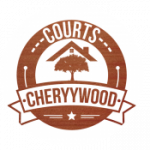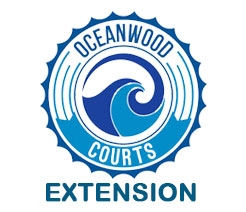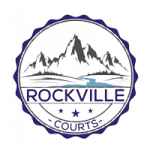17 Proven Efficient Methods of Lead Generation Strategy, You Must implement!
- Build partnerships.
- Throw a housewarming party.
- Become a restaurant regular.
- Send a handwritten note.
- Leverage the internet to advertise.
- Advertise through more traditional media.
- Build your own website.
- Develop a niche.
- Use ‘Coming Soon’ signs.
- Head to an open house.
- Generate leads on LinkedIn.
- Organize educational events.
- Don’t neglect leads.
- Target ‘For Sale by Owner’ listings.
- Reach out to expired listings.
- Rely on satisfied customers to generate referrals.
- Work divorce leads.
It’s important for realtors to maintain a healthy pipeline of leads. When interest rates are low and temperatures are beautiful, you might be flooded with clients. But there’s always a winter lull or market fluctuation around the bend to stop your momentum and, in turn, yo
ur commission checks.
Prepare for the unpredictable nature of real estate with an arsenal of fresh lead-gathering tactics. Here are a few strategies for thinking outside the mass mailer and ahead of the curve.
How to Get Leads in Real Estate
1. Build partnerships.
Network with other local businesses to form mutually beneficial partnerships. Try strategies like co-hosting happy hours, sending gifts to clients or leads, and forming local alliances. Here are a few industries where real estate agents can form productive partnerships:
- Insurance companies – Homeowners insurance is a must, but some homebuyers are also looking to turn their new property into rentals, flip-homes, or businesses. Having the right insurance is key.
- Personal bankers – A home is the largest financial investment many of us will ever make. Having a personal banker to run numbers by can be a huge help for buyers.
- Commercial lenders – Loan officers are an integral part of the home buying process, but most buyers don’t have one in their back pocket.
- Bakeries – Whether you’re sending pies to former clients to keep your real estate firm top of mind or ordering treats to make your open house extra sweet, connecting with a bakery is never a bad idea for a real estate agent — or anyone, for that matter.
- Landscapers – There’s an old adage in cooking that says, “The eye eats first.” A similar principle applies to real estate. Landscaping is often the first impression potential buyers have of a home. Encourage your sellers to have their homes professionally landscaped to set them apart from the crowd.
- Cleaning services – No buyer wants to enter a home that looks a little grimy around the edges. Partner with cleaning services to offer discounted house cleanings to your clients.
- Staging experts – Very few of us have HGTV-worthy show homes, but an aspirational home is a home that sells. Build partnerships with local stagers to get your clients’ houses under contract faster.
- Title companies – A less glamorous but no less important partnership is the one you’ll have with local title companies. Have a few go-to companies to recommend to your clients.
2. Throw a housewarming party
Did a well-connected client just move
into their new home? Offer to cater their housewarming party, spring for an open bar, pay for the appetizers, or deck the place out with gorgeous flowers — and make sure to stop by to mingle. It’s the perfect place to meet prospects in similar life stages who might be impressed by the home you’ve helped their friends buy.
Did they invite the new neighbours? Now’s the time to ask if they’ve considered selling. Neighbourhood sales usually generate fresh homeowner interest, and a housewarming party can turn cold leads to hot.
3. Become a restaurant regular.
Meeting clients at a restaurant or local coffee shop to discuss terms? Consistently schedule these kinds of meetings at the same restaurant.
You’ll build clout with the wait staff, gain access to the best tables, and appear popular and plugged into your community. You might even get to know the other regulars — making you the perfect person for them to contact when they’re ready to buy.
4. Send a handwritten note.
Pick up a pen, paper, and an actual stamp — then, send a note to a past or present client. Thank them for choosing you as their realtor, and remind them you’re available to answer questions, suggest a reliable moving company, or send important documents for tax season.
A handwritten note goes a long way to express your appreciation. And it keeps you from becoming yet another unread subject line in your clients’ inbox. Feeling confident? Pick up the phone a few days later and ask for a referral.
5. Leverage the internet to advertise.
Invest in paid online advertising. Websites like Zillow offer advertising options for realtors — a smart move since the share of home buyers who used the internet to search for a home increased to an all-time high of 97% in 2020, according to the National Association of Realtors.
Here are some of the better ways to market yourself as a real estate agent:
- Run Facebook ads
- Run LinkedIn ads
- Answer real estate questions on Quora
- Run Google ads
- A blog for local or national real estate websites
Here’s what an effective Facebook ad might look like.
6. Advertise through more traditional media.
Sometimes, the best avenues to get your brand out and attract new clients are a little more old-school. Media like billboards and print ads can be excellent resources to grab prospective clients’ attention and keep your services top-of-mind when they’re looking for their next real estate agent. And don’t be reluctant to get creative with your advertising — a little humour or eye-popping visuals can help you stand out.
Image Source: Fit Small Business
7. Build your own website.
Your brokerage will likely give you a page on their website, but it’s important to create your own web presence. This allows you to build a personal brand, showcase your specialities, and share reviews from satisfied clients. It also ensures you have a cohesive presence in the local market — even if you switch brokerages.
8. Develop a niche.
Do you specialize in a certain neighbourhood, historic homes, or helping clients find their perfect apartment? Lean into it! Find your niche and become an expert. This allows you to focus your marketing efforts on a specific group and develop a reputation as the go-to realtor for these buyers and sellers.
Here are a few common real estate niches:
- Historic homes
- Mid-century modern homes
- Luxury homes
- Neighbourhoods
- Student rentals
- School district
- City or town
- First-time homebuyers
- Condominiums or apartments
- Distressed properties
- Senior homes
- Vacation homes
- Land
- Commercial real estate
- Industrial real estate
- Property rights
- For Sale By Owner (FSBO) properties
You don’t have to be an expert immediately. Decide which niche interests you and immerse yourself in it. For instance, if you want to develop a niche in helping seniors find their perfect retirement homes, learn what their needs are, research local senior centres, senior-friendly neighbourhoods, and work with financial planners who understand the unique home buying requirements of the seniors in your area.
9. Use “Coming Soon” signs.
“Coming Soon” and “Sold” signs are a tried-and-true way to generate interest in your properties and expertise. “Coming Soon” signs build anticipation before a home even hits the market.
And “Sold” signs are effective at gathering leads from buyers who missed out on a property — and want you to make sure that doesn’t happen again.
10. Head to an open house.
Not hitting up open houses to harvest new leads? You’re missing out. Many buyers (or soon-to-be buyers) drop in without having an agent. It’s the perfect time to introduce yourself and offer to help them navigate the market.
11. Generate leads on LinkedIn.
Join LinkedIn groups you know your target audience frequents. That could be something like a group for local real estate investors or one for first-time homebuyers. Find the groups your buyers are spending time in, and contribute to the conversation before making a professional pitch.
Once you’ve built rapport, follow up with interested prospects, and offer to discuss their questions further on a call.
Pro-Tip: If you’re posting in a real estate investment group, consider sharing a blog article about up-and-coming neighbourhoods in your city. If someone in your first-time homebuyers group asks a question about interest rates, provide a knowledgeable answer in the comments.
12. Organize educational events.
Host educational events in your community. By teaching local consumers about buying their first home, what the market’s like now, or what to look for in a rental property, you’ll build your personal brand and drum up a new business at the same time.
13. Don’t neglect leads.
Did you show a prospect three properties before they realized they weren’t ready to buy? Don’t throw their number away. Send them postcards sharing developments in the market, keep them on your email list, and leave the occasional voicemail reminder you’d love to help them find that perfect home when they’re ready.
Sales pro Jeff Hoffman offers great tips for salespeople trying to bring stalled deals back from the dead. His biggest piece of advice? Don’t repeat your close. “If the prospect gave you a soft yes — and then nothing — or a firm no, never follow up with the same close. Your next request should be different.”
So, instead of following up with your stalled buyer a few months down the line with a, “Ready to buy yet?” try asking, “Would you be interested in joining our seminar for first-time homebuyers?
This is an easier close and will keep your prospect from feeling cornered or pressured.
14. Target “For Sale by Owner” listings.
According to the National Association of Realtors, only 3% of FSBO listings sell within the desired time — and a mere 18% reported receiving the right price. Find these listings on Craigslist or other real estate sites, and offer to help them get the most from their property listing.
Share a blog post or a few bulleted stats about why working with an agent is beneficial to the seller, and ask if they’d be interested in learning more.
15. Reach out to expired listings.
Pull lists of expired listings from the MLS. Be sensitive to the fact these sellers are likely frustrated with their current realtor, discouraged they haven’t sold their home, and under a lot of stress.
Open the conversation by explaining you understand their frustrations, and share a few ways you’d do things differently to sell their home fast.
16. Generate referrals from satisfied clients.
Positive word of mouth is a major plus for virtually all kinds of sales efforts — and real estate sales are no exception. It’s estimated that 40% of buyers used an agent who was referred to them by a friend, neighbour, or relative. And 91% of buyers would use their agent again or recommend them to others.
Your previous and existing clients can be excellent lead-generation resources. That’s why it serves you to remain in contact with them and keep yourself top-of-mind — and when you’re working with them, give it your all.
Make sure you’re providing them with thorough attention and exemplary service. If you can build trust and develop a productive relationship with your clients, you’ll be in a solid position to capitalize on their referral potential.
17. Work divorce leads.
Divorce leads are as potentially productive as they are uncomfortable to think about. You’ll be hard-pressed to find leads with more urgency behind them — a court order to sell your home tends to have that effect.
Divorced leads require some finesse and compassion. As you can imagine, these kinds of clients probably aren’t too thrilled about being in the position they’re in. But if you can find and appeal to them, you’ll set yourself up with a base of extremely motivated clients.
Also, read more: How To Make 10M in Your First Estate Deal































